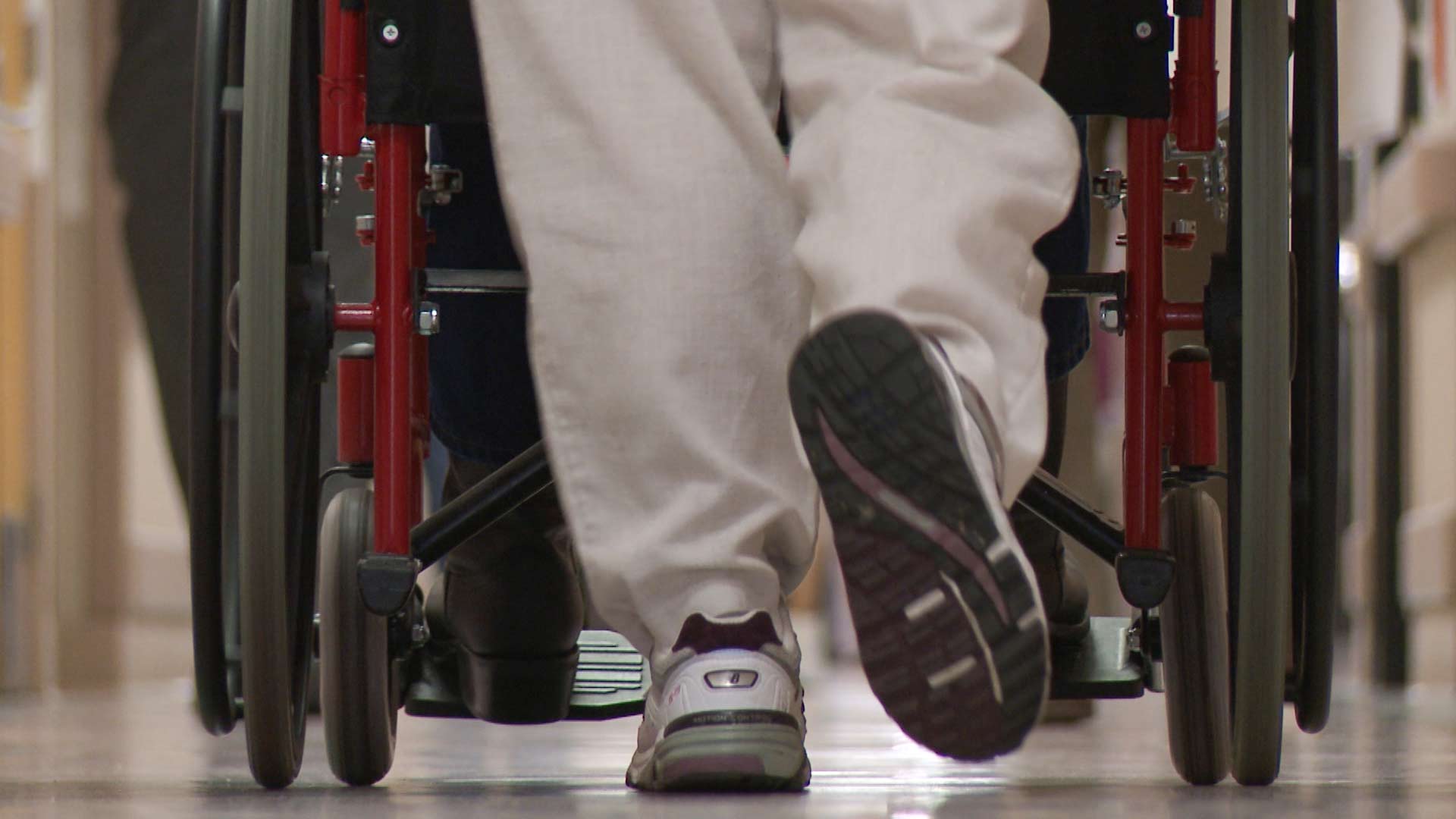 A nurse pushes a patient in a wheelchair.
A nurse pushes a patient in a wheelchair.
She had a cough and shortness of breath — symptoms commonly associated with heart failure.
But when the woman arrived at the Tucson cardiology clinic, Jenna Edwards gave her a face mask. Edwards soon discovered the woman had a fever and had been around someone who returned from China.
This was the first of several close calls Edwards says she has had with the new coronavirus. As an essential health care worker, she can’t shelter in place like the rest of her family and worries she’s exposing them to whatever she’s exposed to.
“Everybody that I know comes home and strips their clothes in the garage,” she said. “We have never felt this level of stress. We're not sleeping through the night. It's like nothing I've ever seen.”
With supplies of protective equipment dwindling, many health care workers on the front line of the COVID-19 pandemic fear a surge of patients that could overwhelm Arizona’s health care system. The potential to contract and spread the virus, coupled with the traumatic work environment, has experts warning that health care workers are facing a mental health crisis.
“It’s coming, and it’s kind of like a freight train we can’t stop,” said a nurse who works at Carondelet Health Network in Tucson. The nurse, along with several others contacted for this story, spoke on the condition of anonymity due to concerns about retaliation and stigmatization.
Eighty percent of Arizona nurses say they lack sufficient personal protective equipment, or PPE, according to a survey of 1,300 nurses released last week by the Arizona Nurses Association. Close to the same number are concerned they’re at risk of contracting COVID-19.
"If health care workers are not feeling confident with guidelines, are not feeling like they're being supported ... and they are putting themselves at risk for both illness, as well as financial ruin from illness for them and their families, people will decide not to go,” said Brad Dreifuss, an emergency medicine physician and faculty member at the University of Arizona College of Medicine.
Arizona health officials aren’t expecting COVID-19 cases to surge until mid-April, but Dreifuss said if things get as bad as in Italy, where doctors have had to resuscitate patients based on the availability of medical supplies, health care workers will endure a severe psychological toll.
“People are not going to leave this situation the same as they entered it,” he said. “PTSD is a major issue within our settings anyway, and it's not something we address well at baseline, let alone in these massively traumatic situations.”
As many as 93% of emergency department doctors who treated victims of the 2003 SARS outbreak reported symptoms associated with post-traumatic stress disorder, according to a 2007 study. Health care workers who fought the West African Ebola epidemic experienced similar symptoms, according to another study. It also found doctors and nurses faced discrimination tied to their exposure to the virus.
This weekend, Dreifuss and a cohort of medical professionals are launching a program that will allow health care workers to voluntarily quarantine themselves in local hotels and dorms with their peers. The goal is to offer housing at no cost, and provide help with child care and other social services.
If health care workers quarantine together, they'll have better access to psychological support from trained professionals, Dreifuss said. That way they won't have to worry about infecting their families and subjecting them to the stigma that can come with exposure. “If we are in quarantine voluntarily, our households are not hot zones.”
The program, called HCW Hosted, is not sponsored by an institution like the university or a major health network. The grassroots effort is reliant on community support — hotels offering rooms, local restaurants offering food, and local donors who are willing fund the operation.
Dreifuss says he and his colleagues are trying to create a model that other communities can follow.
“If we can proactively address the fears and concerns, the risk to our family, we're going to be much more likely to be in this game longer with higher morale and hopefully get Tucson and Southern Arizona back to normalcy more effectively,” he said.
Experts agree it’s inevitable that some health care workers will be infected with COVID-19. In Italy and New York, they’ve become unwitting conduits for the virus. When that happens, it jeopardizes the effort to combat the pandemic, according to University of Arizona epidemiologist Kacey Ernst.
“When we lose a significant portion of our current health care worker force, we overload our health care facilities, we lose a significant number of our older and more vulnerable populations,” she said.
Out of caution, Edwards’ clinic has shifted as many patients as they can to telemedicine. If someone needs to be seen in person, they’ll wait in the car for Edwards to run out and assess them through the window. Supplies are scarce. She’s used the same mask for the past two weeks.
She hopes the precautions won’t be necessary for long.
"What I love about my job is personal connection. And it's hard with a mask on,” she said.

By submitting your comments, you hereby give AZPM the right to post your comments and potentially use them in any other form of media operated by this institution.